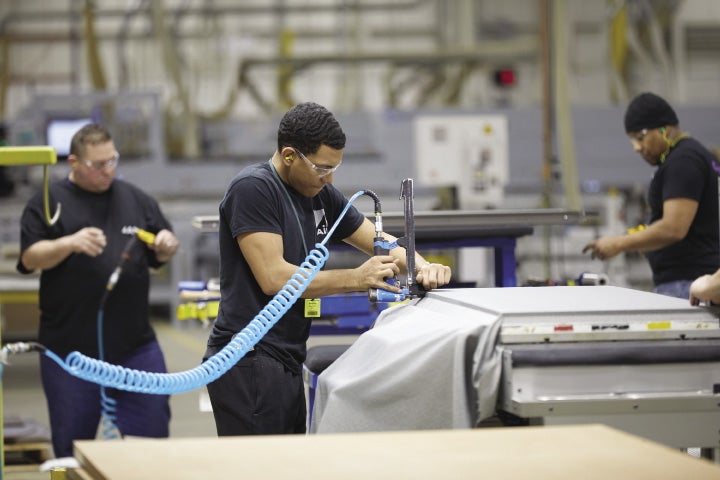The reverberations of the coronavirus pandemic’s impact will continue to impact the manufacturing space in 2024, as companies face challenges in adapting to supply chain shortages in certain sectors like pharmaceuticals, worker shortages, increased costs, and changing consumer trends.
The reverberations of the coronavirus pandemic’s impact will continue to impact the manufacturing space in 2024, as companies face challenges in adapting to supply chain shortages in certain sectors like pharmaceuticals, worker shortages, increased costs, and changing consumer trends.
Worker shortages continue
The nationwide worker shortage won’t go away in 2024. In fact, don’t expect it to recede any time soon; the mass retirement of Baby Boomers has simply been impossible to compensate for. Immigration reform could help fill the gap, but considering the fiery rhetoric surrounding the issue, don’t get your hopes up. Manufacturers, who have struggled finding qualified workers for decades, will continue to find it difficult to fill open roles.
Breweries need to adapt
It once seemed like a new brewery was opening every other week, but rising production costs and changing consumer trends have put a damper on growth. While some have attempted to pivot to lower-calorie options like seltzer or focus more on turning their locations into event venues, others – like Milk Room Brewing in Rutland – have been forced to close. It’s clear most breweries will need to evolve past being places where people only visit to have a beer if they want to survive the year.
Alternative energy and resiliency
The impacts of climate change isn’t just resulting in businesses looking for cleaner sources of energy; companies are focusing on making energy infrastructure more resilient to weather and other potential threats. Expect even more activity in this sector in 2024, with microgrids and geothermal projects at the forefront.
Read 2023's top manufacturing news

